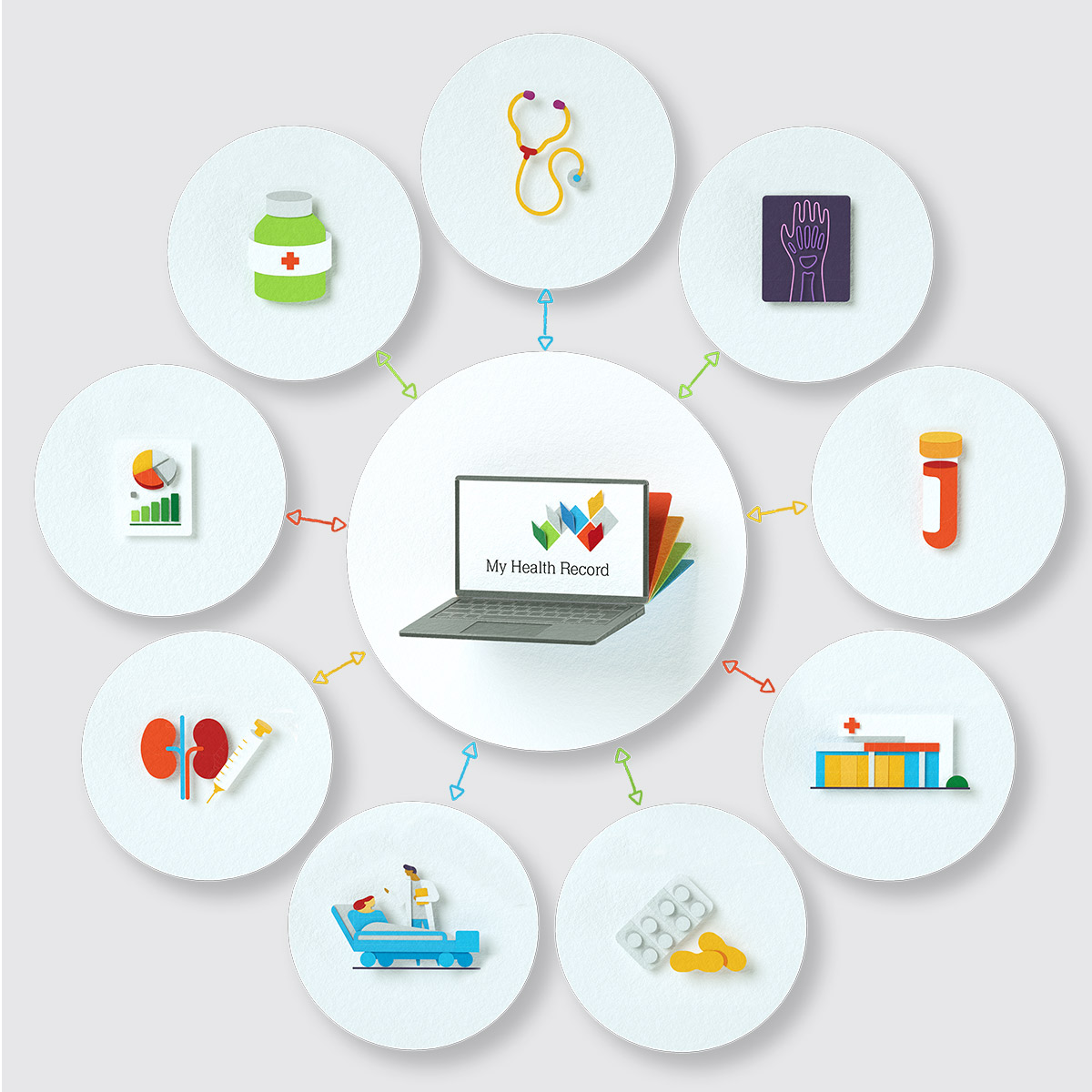
Having a My Health Record could potentially save a stroke victim’s life or prevent serious brain damage as early action based on correct health information is critical after a person has a stroke.
Australians were encouraged to get a My Health Record during National Stroke Week last week as it can alert emergency doctors to life threatening allergies, significant medications including anticoagulants or health conditions fast, which can make a huge difference.
Stroke is a serious medical condition that occurs when the blood supply to part of the brain is interrupted. When this blood supply is restricted or stopped, brain cells begin to die, causing irreversible brain damage. The more time it takes to treat someone who has suffered a stroke, the more likely it is that these brain cells will be impacted.
According to the Australian Bureau of Statistics, strokes are our third-leading cause of death and claimed the lives of 10,869 Australians in 2015. The problem costs our health system $5 billion each year – and yet 80 per cent of strokes are entirely preventable (source). Last year, a new or recurrent stroke occurred every nine minutes in Australia. That’s 56,000 strokes. In 2018, more than 475,000 Australians will be living with the effects of a stroke.
My Health Record is an online summary of a person’s key health information. It allows Australians to share their health information with doctors, hospitals and other healthcare providers from anywhere, at any time. They can control access to their My Health Record including what information gets uploaded and which family members, carers or healthcare providers have access.
Healthy lifestyle habits are important in reducing the risk factors for stroke. My Health Record is a powerful tool in monitoring symptoms or conditions. But it’s also a significant aid when someone suffers a stroke, providing timely access to medical information at the point of care.
This is something Dr Ines Rio, GP and Chair of North Western Melbourne Primary Health Network (NWMPHN), knows from experience. Her father’s tragic death from a stroke illustrates the importance of doctors having access to patient information when it is needed most. 
“In my father’s medical notes they found that many years prior he had an asymptomatic brain aneurysm that was picked up incidentally. The doctors were not prepared to order any treatment until after they spoke to his specialist,” said Dr Rio.
“They rang him but he was in theatre. Four long hours later they got the information they needed. My father was finally given the clot dissolving medicine but bled into his brain.
“Maybe giving the medicine earlier would have made a difference; maybe it wouldn’t have. But I’ll never know.”
Dr Steven Hambleton, Deputy Chairman of the My Health Record Steering Committee and former AMA President, says the current gaps in Australia’s healthcare system have significant consequences for patients.
“Doctors are dealing with a lack of information, especially at the time when they need it most,” said Dr Hambleton.
“My Health Record is most powerful in alerting doctors to the unknown – medicine or allergy dangers as well as prior medical issues. This saves lives in emergency situations and especially after a stroke, when every minute is critical.”
By the end of 2018, a My Health Record will be created for every Australian, unless they choose not to have one. If people choose not to have a My Health Record, they will be able to opt out of having one created for them before 15 November 2018.
More than six million Australians already have a My Health Record and 13,150 healthcare professional organisations are connected. This includes general practices, hospitals, pharmacies, diagnostic imaging and pathology practices. My Health Record is already making healthcare management easier and safer for individuals and healthcare providers. It will save lives in emergency situations.
More information on My Health Record can be found at myhealthrecord.gov.au. People who do not want a My Health Record can opt out by visiting the My Health Record website or calling 1800 723 471 for phone-based assistance. Additional support is available to Aboriginal and Torres Strait Islanders, people from non‐English speaking backgrounds, people with limited digital literacy and those living in rural or remote regions.
With the Australian Digital Health Agency.




